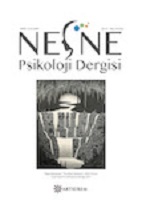Ötekiliği Kucaklamak: Mega-üst Kimlikler, Sosyal Kategorizasyon ve Gruplar Arası İlişkiler
Embracing Otherness: Mega-superordinate Identities, Social Categorization and Intergroup Relations
Author(s): Zafer Güney ÇağışSubject(s): Social psychology and group interaction, Social Theory, Crowd Psychology: Mass phenomena and political interactions, Identity of Collectives
Published by: Sanat ve Dil Araştırmaları Enstitüsü
Keywords: Mega-superordinate identities; social categorization; stereotype; prejudice; discrimination;
Summary/Abstract: The social categories that individuals are members of form important parts of their selves. Therefore, being a member of any group affects people's perceptions, motivations and attitudes. In addition, social group membership is closely associated with intergroup behavior and extreme forms of social conflict. Without any other reason, social categorizations are sufficient for important social issues such as prejudice, discrimination and intergroup conflict in modern intergroup relations. Especially in societies that differentiate based on a single primary social category such as ethnic identity or religion, membership in these groups causes negative consequences. However, inclusive identities can reduce negative intergroup relations based on categorization. For this reason, the main purpose of this study is contributed to the literature by bringing together mega-superordinate identities that have the effect of reducing negative intergroup relations based on social categorization. For this purpose, in the present study, the importance of social categorization in intergroup relations was emphasized and mega-superordinate identities such as "inclusive identity", "meta-personal self", "identification with all humanity", "quiet ego" and "ecological identity" were presented. The present study is the first study that these identities are discussed together. For this reason, it fills the relevant gap in the literature and provides resources for future studies. There are very few studies related to these identities in the Turkish sample. Therefore, examining the psychological factors associated with such inclusive identities in the Turkish sample would contribute to the relevant literature.
Journal: Nesne-Psikoloji Dergisi
- Issue Year: 10/2022
- Issue No: 24
- Page Range: 278-292
- Page Count: 15
- Language: Turkish

